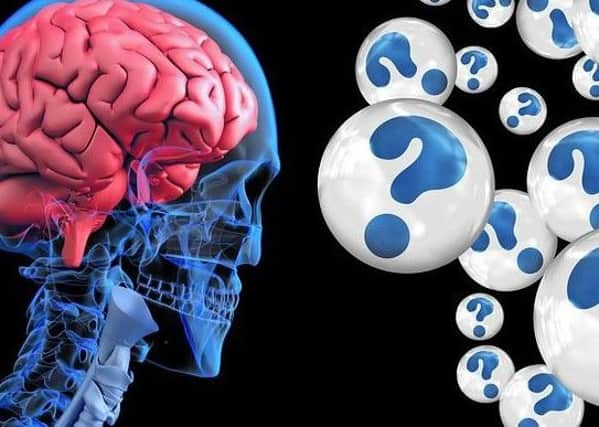Revealed: the undiagnosed dementia problem in West Sussex


Figures collected by GPs show that there are 8,854 people over 65 who have been diagnosed with some form of dementia.
But estimates by the NHS, based on the age profile and gender of patients, suggest that the real figure may be 13,425.
Advertisement
Hide AdAdvertisement
Hide AdThat means an estimated 4,571 pensioners living with a debilitating illness that has not been formally recorded by their doctor.
The figures are being collected in response to the Prime Minister’s Challenge on Dementia set up by the previous PM, David Cameron.
The Department of Health wants GP surgeries in England to increase the rate of diagnosis.
The target was for at least two-thirds of the estimated number of people with dementia to be diagnosed by March 2015.
Advertisement
Hide AdAdvertisement
Hide AdThe diagnosis rate for the whole of England is currently 68.3%, but area to area this ranges from 40% to over 90%.
West Sussex is meeting the national target with a rate of 66%.
The Royal College of General Practitioners said that doctors realised the importance of spotting the signs of dementia early but in some circumstances might delay making a formal diagnosis in the interests of patients and due to pressure on services to support them.
Professor Helen Stokes-Lampard, Chair of the RCGP, said: “There may be some situations where GPs might validly consider it in the best interest of the patient to delay seeking a formal diagnosis, especially in the early stages of the condition if there is minimal adverse effect on daily living and functioning and where patients do not want to be labelled.
Advertisement
Hide AdAdvertisement
Hide Ad“This decision might also be influenced by GPs knowledge of the local availability of assessment and treatment services, which may be insufficient to meet demand.”
Dementia is a term used to describe symptoms such as loss of memory, behaviour changes and problems in reasoning. The most common cause of dementia is Alzheimer’s disease, which accounts for about 60% of cases, but it can be the result of brain damage caused by a stroke or neurological conditions such as Parkinson’s.
Dementia can affect people at any age and across England 456,000 people have been diagnosed.
But the vast majority of cases are in older people. After the age of 65 the likelihood of dementia doubles every five years. This peaks for men in their early 80s when a quarter suffer from dementia. The peak for women is in their late 80s when the rate reaches 27%.
Advertisement
Hide AdAdvertisement
Hide AdThe Alzheimer’s Society said that getting a diagnosis allows people with dementia to access emotional, practical, legal and financial advice, as well as any support and treatment available.
The society’s senior policy officer, Andrew Boaden, said: “Dementia diagnosis rates vary significantly from place to place, which is concerning.
“Alzheimer’s Society research shows that over a third of people with dementia in the UK don’t get a formal diagnosis, and we believe everyone with dementia has a right to know.
“With the number of people with dementia set to reach 1 million by 2021, the Government and the NHS must do more to address this issue.”